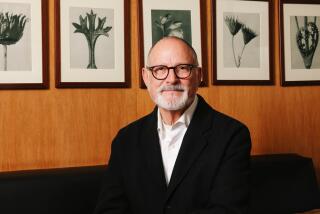Allan Temko, 81; Prize-Winning Architecture Critic for the S.F. Chronicle
- Share via
SAN FRANCISCO — Allan Temko, the Pulitzer Prize-winning architecture critic for the San Francisco Chronicle whose writing helped shape the city’s skyline, has died. He was 81.
Temko, whose health had been failing, died Wednesday of apparent congestive heart failure at Orinda Convalescent Hospital, the newspaper reported Thursday.
The self-styled “activist critic” influenced the design of shopping centers, office towers, bridges and BART stations throughout the San Francisco Bay Area, his admirers said.
“Without question, he had more effect on people’s interest in architecture and design in the Bay Area than anybody else,” landscape architect Lawrence Halprin said.
Temko’s vivid phrases stuck to their targets for good. He was the first to describe San Francisco’s 39-story Marriott Hotel as “the jukebox,” and the Vaillancourt Fountain on the Embarcadero as resembling something “deposited by a concrete dog with square intestines.”
Younger architecture critics held up Temko as a model.
Born in New York City in 1924, Temko grew up in Weehawken, N.J., enrolled at Columbia University in New York and served as a Navy officer during World War II.
After the war, he finished his studies at Columbia and headed to California, where he was a graduate student at UC Berkeley and met Elizabeth Ostroff, his future wife.
The Temkos moved to Paris, where he taught at the Sorbonne and wrote his first book, “Notre Dame of Paris.”
After returning to the Bay Area in 1955, Temko taught journalism at UC Berkeley and wrote for publications such as Harper’s. He was said to be the inspiration for the character Roland Major in Jack Kerouac’s “On the Road.”
Temko became the Chronicle’s architecture critic in 1961.
He was awarded the Pulitzer Prize in criticism in 1990 and retired three years later.
He is survived by a daughter, son, brother and two grandchildren.
More to Read
Sign up for Essential California
The most important California stories and recommendations in your inbox every morning.
You may occasionally receive promotional content from the Los Angeles Times.










